Search Images
Browse Content (p. 1563)

Image
Sennedjem in the Afterlife
A wall-painting from the tomb of Sennedjem, an Egyptian craftsman, depicting the deceased blissfully ploughing his fields in the afterlife. Deir el-Medina, near Thebes, c. 1200 BCE.
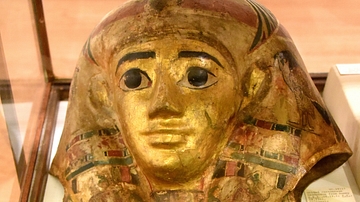
Image
Gilded Face Mask
This is virtually complete and intact gilded cartonnage head from an Egyptian mummy case; The face was depicted formally and was painted at top and sides with Egyptian deity figures. From Hawara, Egypt. Ptolemaic, 332-330 BCE. The Petrie...
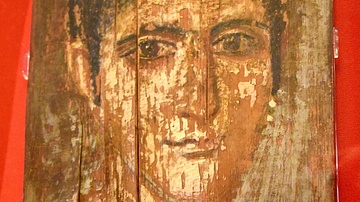
Image
Wax Encaustic Mummy Portrait, Hawara
Mummy portrait of a young woman from Hawara cemetery, Egypt, 2nd century CE. The Petrie Museum of Egyptian Archaeology, London (with thanks to The Petrie Museum of Egyptian Archaeology, UCL). This wax encaustic portrait on a wood panel...
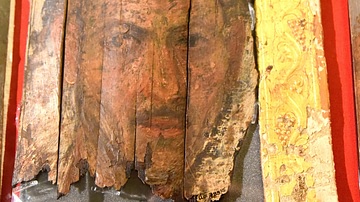
Image
Bearded Male Mummy Portrait, Hawara
Mummy portrait of a man surrounded by a gilt stucco border with an embossed vine pattern, from Hawara cemetery, Egypt, 2nd century CE. The Petrie Museum of Egyptian Archaeology, London (with thanks to The Petrie Museum of Egyptian Archaeology...
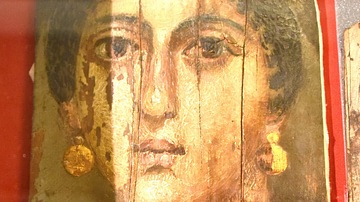
Image
Female Mummy Portrait, Hawara
Mummy portrait of the head and shoulders of a dark-haired young woman from Hawara cemetery, Egypt, early 2nd century CE. The Petrie Museum of Egyptian Archaeology, London (with thanks to The Petrie Museum of Egyptian Archaeology, UCL...

Image
Plaster Head from a Coffin-Cover
This is a painted plaster head from an Egyptian coffin-cover. The eyes were inlaid with glass. Behind the back of the head, there is a painted motif of a winged scarab and sun-disk. This portrait mask is for funerary use. From Egypt. 1st...
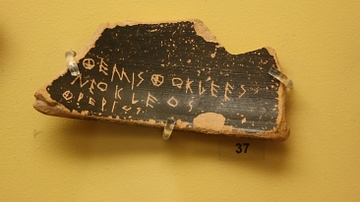
Image
Ostrakon for Themistocles
Pottery ostrakon identifying Themistocles, 480-460 BCE. These were used in Athens to vote a particular citizen to be exiled from the polis. (Museum of the Ancient Agora, Athens)

Image
Pottery Jar From Badari
This is a pottery jar with black repousse. It has 2 perforated handles on its shoulder. From Badari, Egypt. Pre-Dynastic Period, Naqada III, 3200-3150 BCE. The Petrie Museum of Egyptian Archaeology, London (with thanks to The Petrie Museum...
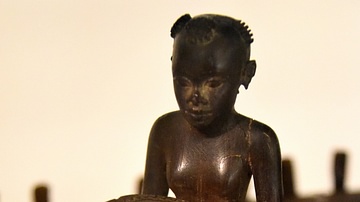
Image
Statuette of an Egyptian Woman & Monkey
This is an ebony statuette of a woman holding a tray on the head of a monkey. From Thebes, 18th Dynasty, 1549-1292 BCE. The Petrie Museum of Egyptian Archaeology, London (with thanks to The Petrie Museum of Egyptian Archaeology, UCL).
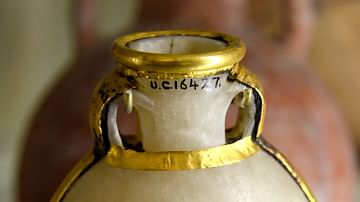
Image
Egyptian Pilgrim Bottle
Gold-mounted alabaster pilgrim bottle. It has a silver foot and was incised with blue-filled cartouches of the Egyptian pharaoh Ramesses II and Queen Nefertari. From Thebes, Egypt. 19th Dynasty, 1292–1189 BCE. The Petrie Museum of Egyptian...